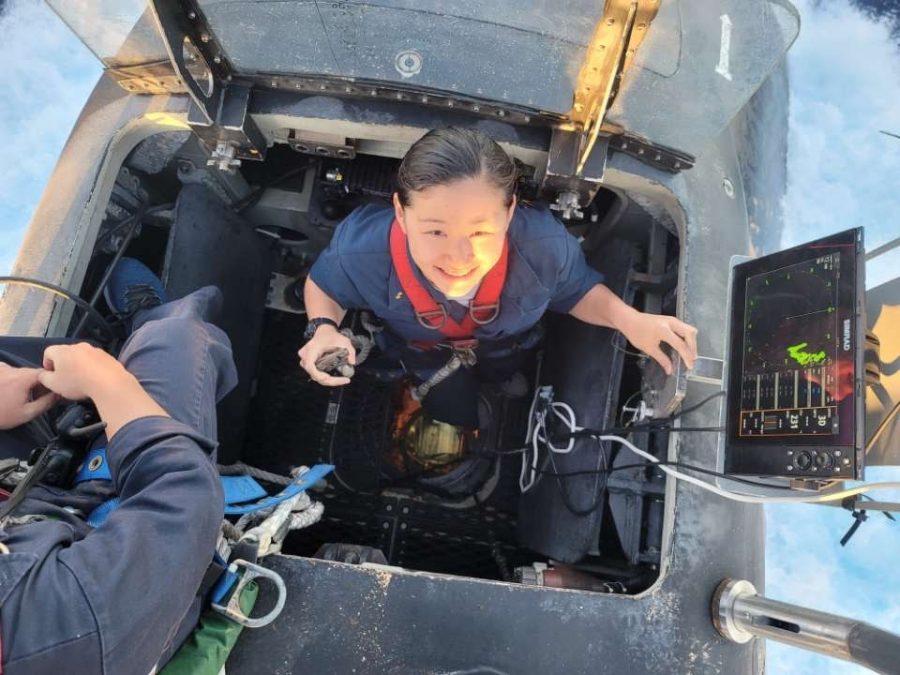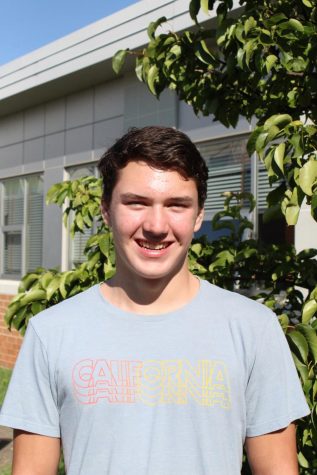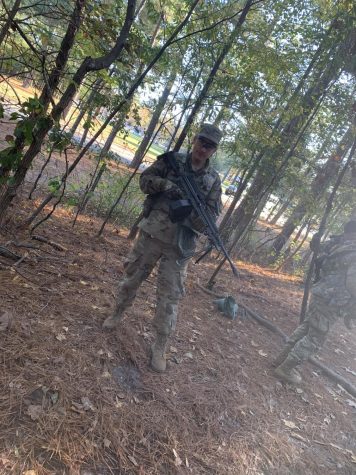
The deafening howl of the wind gets louder as the soldier paces towards the door. Below, the scenery and clouds shoot by and the soldier clings to the static line of his parachute. As he reaches the door, his adrenaline spikes, and his senses come alive.
For WJ grad Kristian Ruschell, this is his reality in the U.S. Army. Like many other seniors, Ruschell decided to serve his country right out of high school. From parachuting to submarines, and the US to Israel, WJ grads are doing it all in the military.
“I first joined right out of high school back in July of 2020, signed up as an 88N (Vehicle Transportation Coordinator), then went to basic and AIT, then went to airborne school, now I support the 1Special Forces Group (Airborne) unit out of JBLM Washington,” Ruschell said.
In only two years, Ruschell has been able to do a lot in the Army, and has made many life-long memories along the way.
“I think the coolest memory I have had since I’ve been in has to be my first time jumping out of a plane, I’m hoping to make some more awesome memories while I’m in,” Ruschell said.
The Army has impacted Ruschell a lot, and he recommends it to students at WJ.
“…The military has so many programs for when you’re in, you can go to college while you’re in and get paid for it almost, and the schooling is free, there is a job for everyone, whether that being you like driving trucks to working on trucks, or from flying helicopters to working on them, there is a large spectrum of jobs in the military,” Ruschell said.
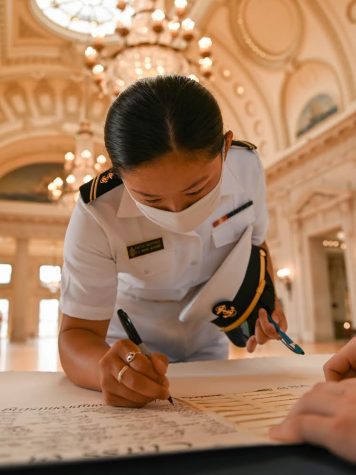
Most officers in the US military have a bachelor’s degree; however, not all of them attend normal colleges. Some choose to attend a service academy, like WJ grad Kaitlin Nachtrieb.
Service academies are four years of academics combined with military structure, education and lifestyle. Nachtrieb chose to attend the United States Naval Academy, which like all other service academies, starts with summer training.
“Midshipmen begin with indoctrination training over their first summer (known as “plebe summer”) which immediately transitions into four years of education to receive a bachelor of science undergraduate degree. Upon graduation, we enter the fleet as a Marine Corps or Naval officer and serve a five-year minimum service requirement,” Nachtrieb said.
All students that attend service academies receive their education for free, in turn for a minimum of five years of service upon graduation. Service academy graduates enter their branch as an officer and get to choose where they want to serve.
“I intend on selecting into the Submarine force which requires a nuclear specific education program before deployment,” Nachtrieb said.
Life for service academy attendees is known to be extremely rigorous, helping to shape high school graduates into first-class leaders.
“Physically and mentally, you can’t help but get stronger. We are all required to play sports which keeps us in shape, but the overall culture of excellence at the Naval Academy is what really drives me. There is always something to work towards and a bigger picture of leadership and service to strive for,” Nachtrieb said.
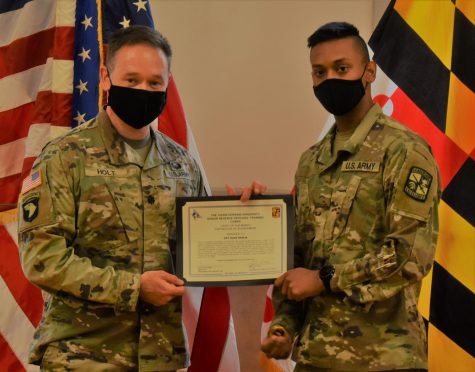
Despite the academic rigor and demanding lifestyle, Nachtrieb could not recommend service academies more.
“One hundred percent, I would recommend service academies to WJ students. If you are willing to work hard and endure a little discomfort, there are so many amazing opportunities the Navy can provide. Job security and a real sense of purpose is nothing to overlook,” Nachtrieb said.
Service academies are not the only way to combine college with military training, however. Reserve Officers’ Training Corps (ROTC) is a program that nearly all large colleges and universities have. ROTC is a way for students to gain scholarships, military training and a timely entry into their branch of choice.
For WJ grad Alok Barua, Army ROTC at UMBC was a great option.
“I applied for an Army ROTC (Senior Reserve Officers Training Corps) scholarship during my final year at WJ, and I began my training at the Johns Hopkins University Army ROTC Battalion this year as a Freshman in college. Through ROTC, I hope to be able to commission as an Infantry Officer in the Army upon completing my bachelor’s degree,” Barua said.
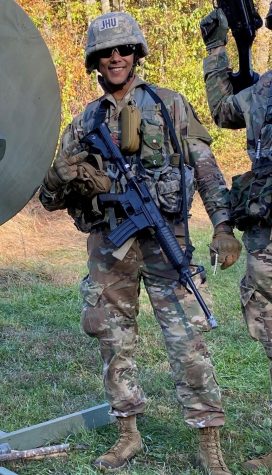
Even though ROTC students, like Barua, attend civilian colleges, they still have military training and education. Through his ROTC military training, Barua has made some cool memories.
“it [Barua’s favorite memory] would have to be Night Land Navigation in late November- where my fellow cadets and I were tasked to travel miles through pitch dark forest to find objects with solely a map and compass. Completing those sorts of tasks in the middle of the freezing cold with little to no illumination felt like a major affirmation of all the training I had put in throughout the semester,” Barua said.
Barua’s ROTC experience has changed his college experience significantly.
“While the 4 am wakeup calls for workouts and 60lb ruck marches have all been quite transformative, the biggest advantage I have felt participating in ROTC is the sheer diversity of people I’ve been able to interact with. Multiple schools participate in my battalion, each sending students with different majors and goals in the Army- with some of those folks being only 18 or 19, and others grizzled veterans of Iraq and Afghanistan. I suspect my college experience would be far more insular if it was not for ROTC,” Barua said.
From Barua’s experience in ROTC so far, he highly recommends ROTC to WJ students.
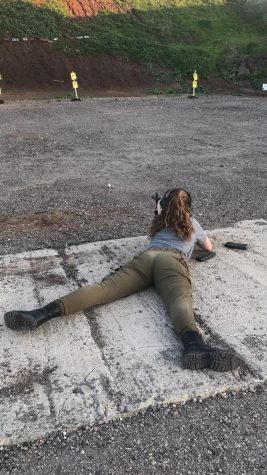
“Officership in all military branches (although you should definitely choose the Army) is, in my mind, the ultimate expression of leadership and service in today’s world. Managing upwards of 30 soldiers directly upon graduation in pursuit of genuinely meaningful and fulfilling missions is a goal worth training towards via ROTC. The free college and incredible opportunities to travel and blow stuff up are really the cherries on top,” Barua said.
From enlisting to ROTC, the US military offers a lot of options. However, not all WJ students choose to serve the US, some opt to serve their home country, most popularly being Israel. The Israeli Defense Forces (IDF) consists of Israelis from all around the world who come back to serve.
“After graduating from WJ in 2017, I moved to Israel in the summer with a program that helps people from around the world to adjust to life in Israel and enlist into the IDF. My army service was a total of two years, after finishing my Hebrew course of two months, I officially enlisted into the Air Force to become a commander,” WJ grad Sigal Rosen said.
After enlisting, Rosen was off to basic training.
“It was three months of intense basic training and three months of the course itself to learn how to become a commander. I became an Air Force Commander and was in charge of soldiers like dog trainers, drivers and security guards. I would be in charge of the soldiers and to make sure my base was safe and secure in any dangerous situations and if there was one, I would be the first one to jump to the occasion and handle it with my soldiers,” Rosen said.
After training, Rosen was able to meet and work with people from all over the world, her favorite part. She was able to grow a lot as a person.
“My experience in the military helped me grow in ways that I never thought would happen. I was able to learn to live independently in another country without my family, get out of my comfort zone, and learn that I can do things mentally and physically that I never thought I could do,” Rosen said.


































